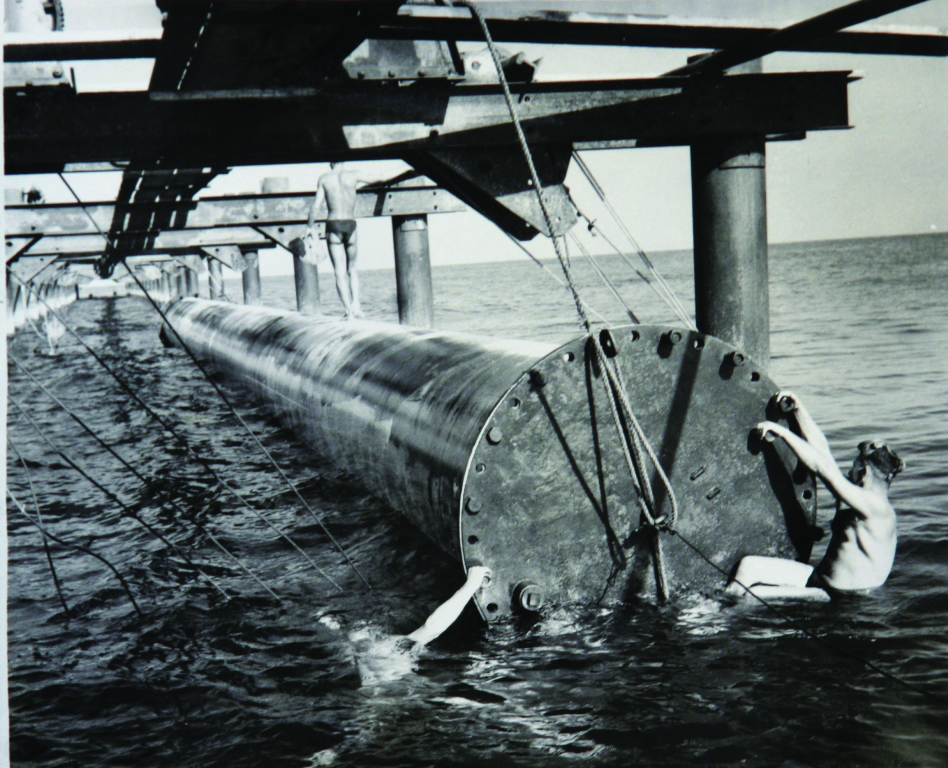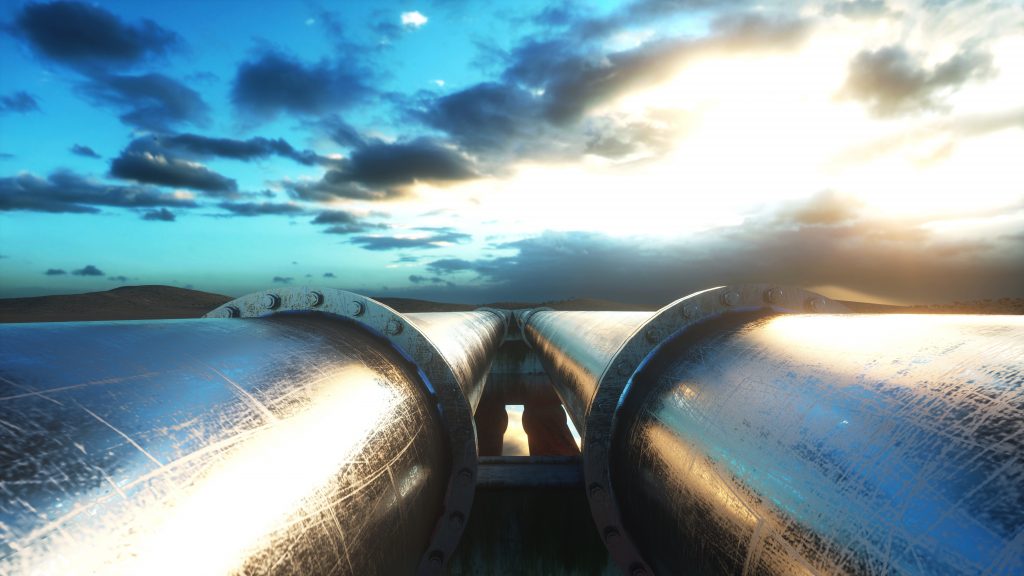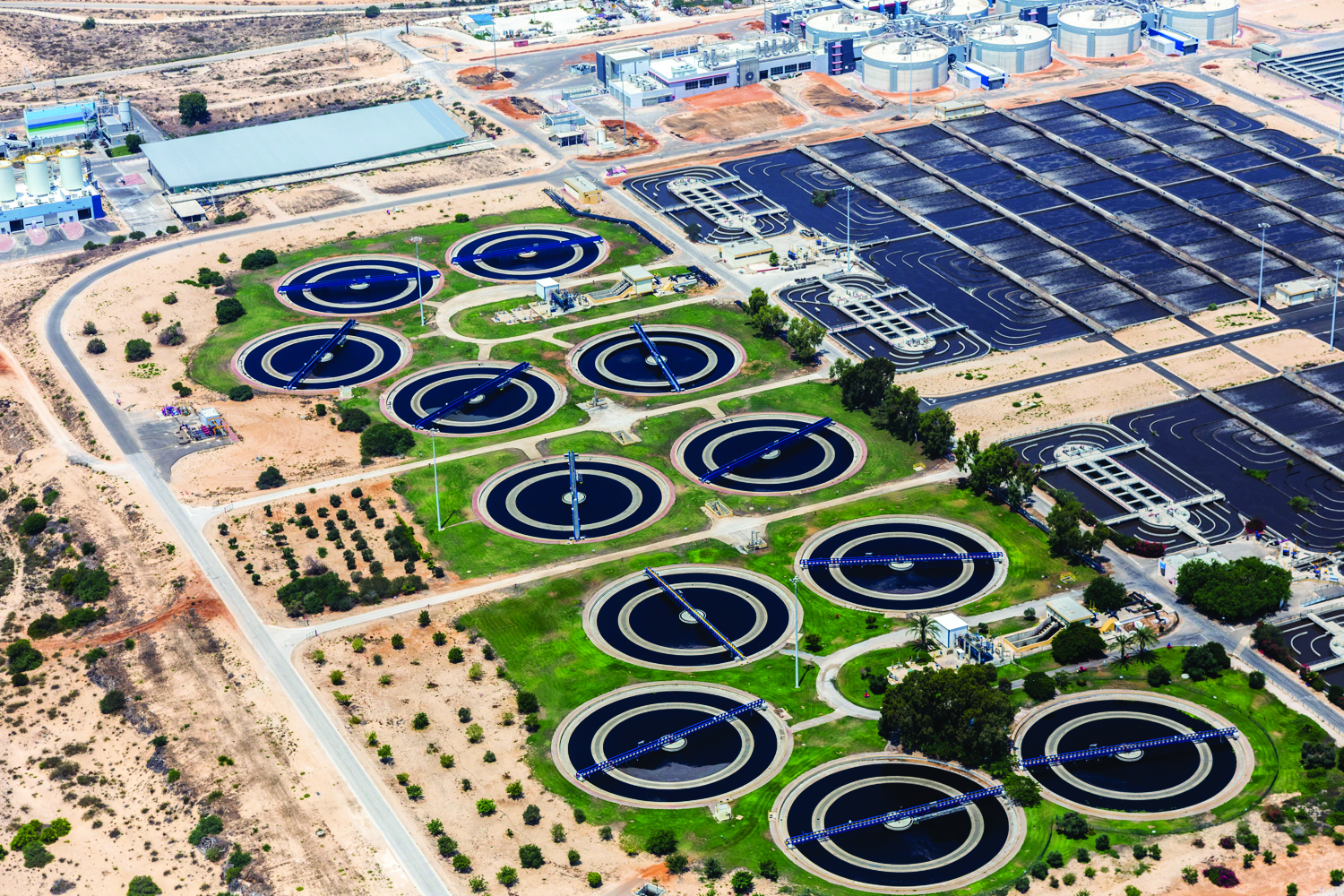
The United States government estimates that by 2025, billions of people on earth will suffer from water shortages, and the United Nations goes so far as to estimate that approx. two-thirds of the world’s population will suffer from a shortage of drinking water. Food prices are predicted to rise dramatically, world order will be undermined, and wars are likely to break out due to the constant struggle for control over water sources.
The falling water graph is the result of over-consumption, waste, failure of the water economy, salinizing water as a result of over-pumping, pollution of water resources, and climate change. These climate changes will leave 1.8 billion people thirsty by 2080. The General Meeting of the UN announced last December that for the next decade, they would be focusing on the global water issue.
Israelis have heard all this before. For years we’ve heard that Israel is “drying up.” So the surprising figure is precisely this: Israeli, which as not been blessed with any sediments and whose population is continuing to grow, is a country that no longer has a water problem. Moreover, hundreds of Israeli companies have been helping many other countries in the world find solutions to their water problems. The volume of export of the Israeli water industry currently stands at $2.2 billion, and the graph is constantly rising. In other words, Israel is a superpower.
This fact is no less amazing, especially if you consider the fact that for decades, Israeli children have heard “horror stories” about the period of the Jerusalem siege, which described the reincarnation of the water bucket used initially for drinking, then for cooking, then for watching the water, later for watering plants, and finally to wash the floor and dishes.
We were all educated about the value of water in our country, we sang songs like “Pity Every Drop,” and we looked with reproach at those sprinkling their garden with a hose on a sunny afternoon. We knew: Israel was not blessed with water, each drought would reduce the Sea of Galilee, and with it, Israel’s national mood. We needed to save water. But the sense of constant third that accompanied us belongs in the past, and not because there has been a fundamental change in weather, and not because we have discovered new aquifers of pure groundwater. On the contrary, if in the past we were dependent on the vicissitudes of nature, lifting our faces to the sky in prayer, today, we seem to be bypassing this bureaucracy and solving our water problem by ourselves, using technology.
Water is a Game of Innovation
In Seth Siegel’s book, “Let There Be Water – Israel’s Solution for a Water-Starved World,” which turned into a New York Times bestseller, the author describes the calculated process of our transformation from an impoverished country to a world water superpower – a process that began in the 1930s and continues to this day. He also claims that Israeli initiatives and innovation of the issue of water can literally save the entire world from drying up.
Siegel, a lawyer from New York, says he wrote his bestseller as soon as he understood that a huge water crisis was knocking on the world’s door and policy makers and leaders were simply not paying enough attention to it. “When I understood that Israel is the most advanced “water state” in the world, in an area with a very limited quantity of water, I was thrilled to tell this wonderful story. Everyone is used to hearing negative stories about Israel, but I thought the world should also hear about Israel’s achievements, which can help save the world.”
Writing the book took two years, during which Siegel interviewed more than 200 figures related to the water revolution. The book has been translated into more than 10 languages, and since its publication, Siegel lectures all over the world, telling the story of Israel’s success in the field. According to him, the seeds of success were sown during the British Mandate.
In those days, one of the arguments presented by the British in the “White Book,” – formulated by the recommendations of a committee of experts that arrived in Israel to examine the water sector – was that there was not enough water for absorption in the country, especially with mass population. The conclusion was to limit the immigration of Jews to Israel (75,000 immigrants in five years.) Thus, in order to deal with the claim, the leaders of the Israeli Yishuv formulated a plan containing preliminary ideas for the establishment of the National Water Carrier. The British argued that under the limits of rainfall, there simply could not be more than two million people living in Israel.
The Transport Plan presented to UN representatives, who arrived in 1947 to test the waters, convinced the British that the Jewish state was capable of taking in many refugees, three times of the size of its population. Today, there are 12 million people living between the Jordan River and the sea, and Israel also allocates water resources to the Palestinians and to Jordan as well as exporting billions of dollars worth of agricultural crops a year. “Needless to say, the British economists were wrong,” summarizes Siegel. Israel has always been known to save water for many reasons.
First, unlike other countries in the world, water in Israel belongs to the community. For example, it is forbidden to store rainwater or to draw water from wells, even those located in private areas. Secondly, since 2008, citizens of the state are required to pay the full price of water. According to Siegel, this decision decreased water prices by 40% and decreased water consumption by 16%, although it seemed up until then that the Israeli public had reached the threshold of savings. Another measure adopted by the state was the installation of a water meter for each consumer. For most of us this seems like something obvious, but many countries do not place responsibility of wasting water on the private consumer, thus not encouraging saving. Parallel to the surge in prices, water treatment was transferred to the water corporations, a move that had a positive effect on the Israeli water sector.
“The water corporations brought redemption to the State of Israel,” says Prof. Haim Gvirtzman, a hydrologist from the Hebrew University. “They are the ones who made sure the citizen’s water payments didn’t make their way into the municipal treasury. Therefore the water is of very high quality and the systems are much more efficient.” Moreover, many water corporations have established greenhouses for innovation in the field of water. They encourage high-tech companies in this field to try their ideas, and these developments are subsequently embedded in water systems throughout the country and even marketed to the wider world. But we’re ahead of time.
Less Talk, More Water
The most dramatic Israeli invention of water in the 20th century is drip irrigation. Not only are they far more efficient than ancient methods, such as “flood irrigation” in which more than 50% of the water is wasted, or irrigation using sprinklers, which wastes about a third of the water, drip irrigation increases the crops immensely. They are even more effective than rain, says Siegel, who tells the story of this technological invention in his book.
Simcha Blass, the national waterfront founder, visited Kibbutz Nir and noticed that one tree was larger and stronger than the other. He approached the tree, examined it, and saw that there was a hole in the irrigation pipe next to its trunk. The rest – as is commonly said – is history. Today, the drip irrigation system makes billions and is popular in markets from India all the way to Africa. This genius and simple Israeli invention also incorporates fertilization so that the crop receives everything it needs without any dependence on the components of the soil in which it is sown.
But drip irrigation is far from being the only Israeli technology to chance the face of agriculture. In the 1960s, many Israeli scientists developed seeds for plants that save water. Wheat, for example, has become physically shorter because a long stem is not essential to the quality of the wheat and actually wastes water. Tomatoes now bear fewer leaves for exactly the same reason. The Ministry of Agriculture encourages such developments and supports research institutions such as the Desert Experimentation Center for Agriculture. The Volcanic Institute also has its own development center, which is part of the Gilat Center, located in the northern part of the Negev, which aims to provide solutions for sustainable agriculture in arid and semi-arid regions. Israeli seed growers market their development worldwide and are highly valued.
Another way to save water, which began to develop in Israel in the middle of the last century, is wastewater treatment. Establishment of the sewage treatment plant is the turning point of in this area. The idea came to the minds of government officials in the 1950s, but due to the many planning and budgetary difficulties raised by this enterprise, it was only used in 1973. The initial goal was to transfer the water to two purification processes and make them suitable for agricultural use. No one imagined that another third purification would make this water drinkable. Israel is currently the world’s number one wastewater treatment and reusable plant: 85% of purified water is used for agriculture. Spain comes in second with only 25% purified water. According to Siegel, the moshavim changed the face of agriculture in Israel and enabled it to become a major agricultural exporter, regardless of the whims of the climate.

Water: A New Industry
After they had exhausted the potential of purifying the sewage, the watermen turned their faces to the great sea. On the face of it, it was vast and inexhaustible source of water, but of course it was not available because of its salinity. The Israeli scientists saw this not as a hindrance, but as a challenge, and so it set out to find the next revolution in water: desalination. A Jewish chemical engineer from Kansas named Sydney Love came up with the idea of “reverse osmosis” a process in which water is separated from the salts and minerals through a membrane.
The use of reverse osmosis at the first desalination facility in Ashkelon produced fresh water of excellent quality at a price that was 50% lower than the most optimistic estimates. Not everything is perfect. The desalination plant in Ashdod, operated by the company “Proactive Sources,” was in trouble. The facility’s operations were delayed by two years, and it produced only 85% of the 100 million cubic meters of desalinated water it committed to producing. The deficit resulted in fines and losses: 366 million shekels were erased from the company’s reports, and simultaneously a 700 million shekel lawsuit was filed against them. But this is an exceptional case. Four additional facilities in Ashkelon, Palmachim, Hadera and Soreq, which were built by private companies, operate very successfully and provide close to 70% of the water for domestic consumption in Israel.
In his book, Siegel quotes the former Water Commissioner, Shimon Tal, who declared: “We succeeded in addressing the problem of climate change.” Today, Israel can withstand a long drought without a crisis. Siegel also quotes Ilan Cohen, head of the Prime Minister’s Office during the tenure of Ariel Sharon, who emphasizes that desalination is important because it allows Israel to control its own fate. “This is important for every country, but for us it is especially important so long as we are surrounded by enemies.” Water has become a resource for a purely economic question, he concludes.
Solving the Israeli water problem has not only led to an important strategic achievement for Israel. It was also the opening for broad economic and technological change. In fact, Israel has begun to form a technology industry that produces plenty of water and this time, scientists and engineers are not only focusing on Israel, but on the entire world. Today, Israeli companies based on advanced technology bring the message of saving water to all corners of the world and literally save lives. These are large and old companies such as Netafim, Plasson, Amiad Corporation and in start-ups that specialize in a variety of fields – from desalination to water saving and production. This category includes, for example, Aqwise, focuses on waste purification with 400 facilities worldwide. Another company includes Emefcy, which purifies sewage for irrigating using a method, which saves about 90% of electricity consumption and operates in China, Ethiopia and the United States. Another company, Arad, manufactures water meters for collecting and managing information remotely. Its technology is embedded in 60 countries around the world. TaKoDu, which analyzes statistical data and warns of malfunctions, Aquarius Spectrum, which leverages water systems and an underground spill site, and Curapipe, which installs piping fluids without the need for excavation and saves millions of cubic meters of water all over the glove.
In addition to the immediate savings in water, there are also Israeli companies operating in tangential fields such as hydrospin, which invented generators that are embedded in the pipeline and produce electricity for monitoring systems. Another is Innovation: Africa, which installs a solar panel system that supplies electricity to water pumps in remote villages in Africa. The list goes on and on.
Nearly 200 Israeli companies in the field of water technologies are currently operating in Israel and around the world. Israel understands the economic and political potential in this, and invests these resources directly in government companies. The Ministry of Economy and Industry, for example, established the program to promote water and energy technology, which aims to “maximize the business potential of the Israeli water industry in the global market, and turn it into a major market factor by relying on the proven experience and ability of the industry and of academia in the field. This exploits the window of opportunity created by the global water crisis. The firm has established technological incubators, encourages studies in the field, and grants scholarships for research, with an emphasis on studies with commercial potential.
Between Iran and California
The knowledge Israelis have accumulated in the field of water not only constitutes an economic potential, but also an important diplomatic tool. The economic connection with China, for example, was created among other things, against the background of the water shortage the superpower was going through, according to Siegel. Before the Islamic Revolution, Israeli scientists and engineers had also contributed to improving the country’s water system, some of which were thousands of years old.
Many African countries also benefit from Israeli knowledge in the field. “In the 50’s and 60’s, Israel was very active in third world countries struggling with water shortages and due to this, extraordinary friendships were created,” says Professor Gvirtzman. “Later, because of tension created by the wars, many countries preferred to abandon this alliance because they were weak and needed a connection with the Arab world.”
“Following the Yom Kippur War, the Arab League demanded that African states cut their ties with Israel,” says Siegel to Forbes. “That’s how it was, and these countries suffered a great deal because of this decision, which is so sad for Iran. I’ve been telling the story about how water innovation helped create good relations with Iran since 1962. Israelis left Iran in 1979 and Iran already had advanced water systems thanks to this cooperation. Instead of continuing to build high quality water systems similar to those created for Iran, the huge oil revenues were wasted on nuclear projects and other engineering projects that filled the pockets of those close to the regime. Today, Iran’s water supply is at risk more than any other country in the world. The Iranian people will suffer from terrible water shortage due to the corruption and insane ideology of its leaders.”
But not only developing countries benefit from Israeli knowledge of the field – many Western countries also benefit from the technologies Israeli companies have accumulated. One of the most prominent examples is California, which suffered from a severe water crisis, which has led to close relations with Israeli companies. Prime Minister Benjamin Netanyahu stated very clearly that “Israel has no water problem, and there is no reason why California should have a water problem, either. We have proved this. This is not a theoretical possibility, it is a concrete situation.”







